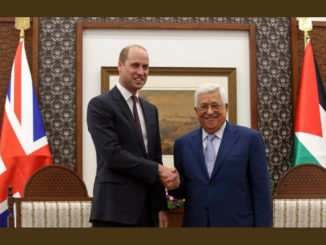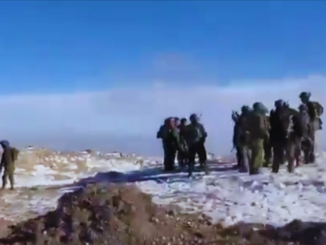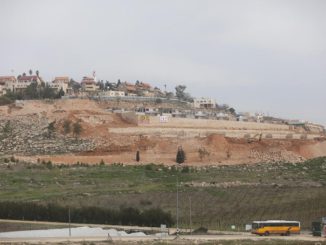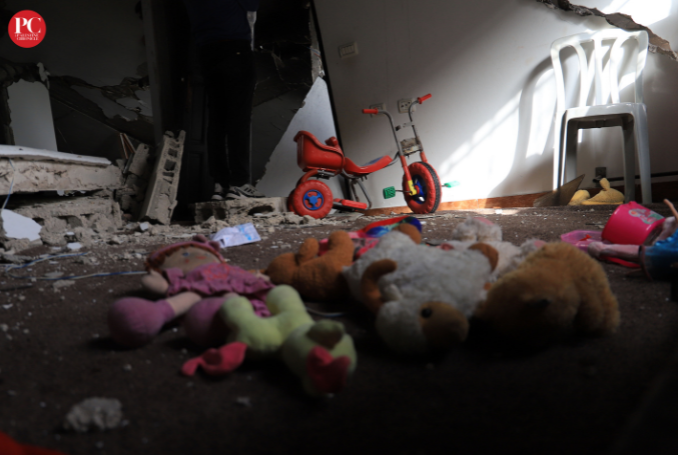
On May 9, Israel launched a major war on Gaza, which lasted for five days. When a truce was declared, Gaza was mostly removed from the news cycle. The memories of the war, however, continue to live on.
The War Begins
On Tuesday, May 9, as Israeli warplanes launched their attack on Gaza, we received a call from my cousin Shereen, who lives in the southern Gaza city of Khan Yunis.
Shereen and her two young daughters wanted to stay with us in the city. Despite the fact that traveling could be dangerous, she felt she had no other choice since the Israeli attacks were getting closer and closer to their home.
Later that day, the three of them arrived at our house, safe, but rattled by their perilous journey.
Shereen’s daughter, Jody, asked while whispering: “Are we safe here from the hhhwwwww?,” making the sound of a scary monster. We could not answer that question. All we could do was huddle with Shereen and the two little girls in our living room, staying away from windows, and hoping we would be safe.
While the girls played with their dolls and told their innocent stories, we were watching the news. All of us could hear the sound of bombs and missiles exploding in the distance.
I helped Shereen take care of her children, and I tried, as much as possible, to answer their endless questions about whether we were safe from the bombs that seemed to be exploding all around us.
Shereen tried to reassure the children by telling them that nothing will happen.
My other sister, Wedad, tried to cheer everyone up by baking a cake and pretending that everything was fine.
War Closes In
For four days in a row, the Israeli missiles kept raining down throughout the Gaza Strip.
The Al-Jazeera TV channel showed adults and children killed in their homes. The live TV coverage never stopped showing Israeli F-16 fighters attacking and killing Palestinians in Gaza.
Each day, the violence drew closer. Early that afternoon, Israeli jets destroyed the streets we used to travel to get to my grandmother’s house.
At around 3 pm on Friday, the children were finally taking a nap, when we were all awakened by loud explosions that seemed dangerously close.
I looked out the window to see debris scattered all over the area. Our home’s street was covered in dust and shrapnel. When it became apparent that one or more missiles or bombs had exploded nearby, I ran outside to see what had happened.
Our neighbors’ home had been hit. It was on fire. We knew them to be kind and respectful people who would never hurt or threaten anyone.
When the ambulance finally arrived, the medics found that two people had been killed and one injured.
I saw with my own eyes a body being pulled from the rubble. It was Ayad.
My mind took me back to a day not that long ago when I saw Ayad sitting on a chair in front of his house reading a newspaper while children played football nearby.
The kids hit him with a ball by mistake. He quietly asked them to stop. When they hit him again, instead of shouting at them or reporting them to their parents, Ayad stood up, put the newspaper on the chair, asked the children to pass him the ball, and started to play with them.
He made all the children happy that day. Ayad will be sorely missed.
Death Toll Rises
I was still outside, trying to cope with my feelings, when I heard screams and shouts coming from our house.
I went back in to check on the children, and I saw them huddled under a table with their mom. They were terrified, but I managed to calm them down.
I decided to go back outside to support the survivors of the attack. I ran into my friend Momen. He was screaming inconsolably as he tried to pull his niece from underneath the rubble.
We learned later that evening that at least 30 people had been killed in the Israeli airstrikes over the course of four days.
My 16-year-old sister Farah told us to wear our prayer robes so she could recite El Shahada, the Muslim testimony of faith.
In moments like this, only prayers can help us cope with our uncontrollable fears and unanswerable questions.
The May attack on Gaza is but the latest of a long series of acts of aggression carried out by Israel against our people.
Memory Lingers
All these sad memories will accompany me for the rest of my life.
Over the past fifteen years, I have witnessed the destruction of people’s homes and schools, including El Shatah, my old school in the Shati refugee camp, where my family used to live.
I also lost a friend in 2021, when Israeli air strikes killed all 22 members of the Al-Qawluqu family, who lived near our neighborhood in western Gaza.
Zanib, one of the daughters, studied with me at the English Department at the Islamic University of Gaza. She was a wonderful painter.
When Israeli warplanes targeted the neighborhood after midnight, our building shook as if there had been an earthquake.
It took only one minute for the Israeli airstrike to wipe out the entire Al-Qawluqu family and destroy their home. The family, however, has not been erased from my memory or the memories of those who loved them.
The repeated Israeli attacks on the Strip deprive us of basic human rights: the right to be safe in our own homes.
Like most Gazans I know, my family and I are tired of being attacked. We are tired of being terrorized. We are also tired of being accused of being terrorists. We just want to be safe. Shereen’s children want to be safe. All Palestinians deserve to be safe.
This injustice cannot become our daily routine.
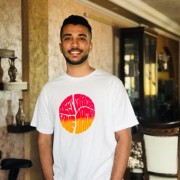
– Younes El-Hallaq is an English major at the Islamic University of Gaza, and a writer at We Are Not Numbers. WANN contributed this article to The Palestine Chronicle.

